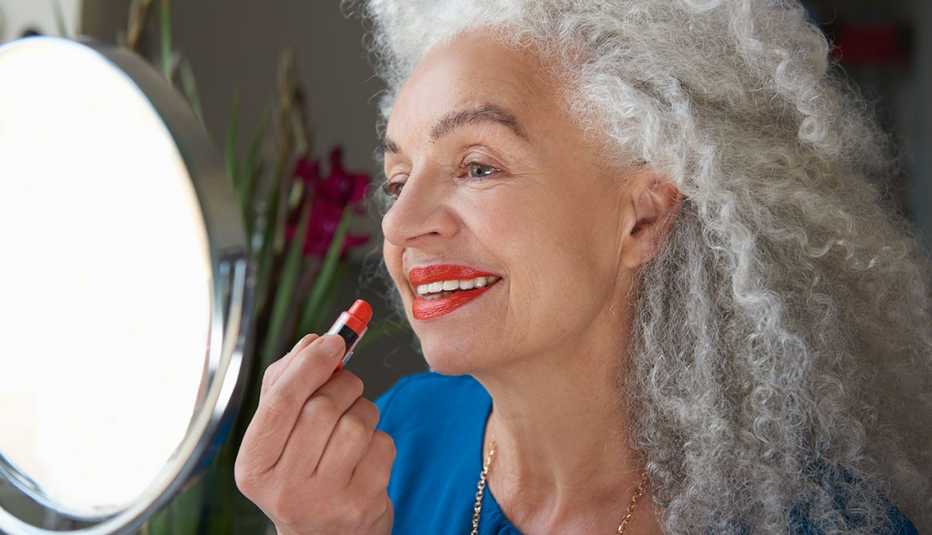AARP Hearing Center


First, the good news: 7 in 10 women say they look inward to define their own beauty instead of comparing themselves with others. This holds true for three-quarters of women 50 and older and two-thirds of women 18 to 49.
Now, the not-so-good news: Nearly the same percentage of all women say most people judge their gender on external beauty. The number of people who felt this way remained the same — 71 percent — for women 18 to 49 and 50-plus.
Those insights from Mirror/Mirror: AARP Survey of Women’s Reflections on Beauty, Age, and Media highlight the pressure women often feel to meet beauty standards set by others.
The majority of respondents say advertising and social media are the main entities dictating beauty standards for women. Nearly half say those norms come from “what we see other women doing,” and a fifth say men also influence those standards.
The national survey of 7,368 adult women conducted Nov. 2–30, 2022, uncovered some contrasting attitudes and actions. For instance, among women familiar with photo filters, 60 percent view those filters and other editing tools as “distorting/negative” when it comes to how women present themselves or how advertisers represent women. Yet slightly more than one-third of all respondents have used filters or editing tools to alter their appearance in photos or videos. More than half of those 18 to 49 used them, as did 20 percent of those 50-plus.
Women welcome more inclusive marketing messages
Most respondents noticed increased efforts by marketers to include models of varying ages, body shapes and races and applaud those endeavors. Nearly 7 in 10 women say they “love it” or “find it refreshing.”
At the same time, 51 percent of those 18 to 49 and 68 percent of those 50 and older say they “rarely” or “never” see themselves represented in media and advertising. And when it comes to women 50 and older being accurately portrayed in the media, respondents of all ages say that only occurs about a third of the time.
“There are certain companies embracing that individuality and authenticity,” says Patty David, AARP vice president of consumer insights. “But overall, the advertising business has a long way to go to be truly reflective of the everyday woman.”
For example, although those 50-plus make up a good portion of the workforce, few images show older adults in the workplace, she says.






































































More From AARP
Stars Own Their 50+ Bodies in Revealing Swimwear Posts
Forget cover-ups, these women are feeling comfortable in their own skin
Women Are Ditching the Dye, Embracing the Gray
Actress Gwyneth Paltrow is latest star embracing her roots
Martha Stewart Stuns as Oldest Sports Illustrated Swimsuit Cover Model
The author and lifestyle entrepreneur says ‘being fearless is very good’